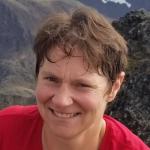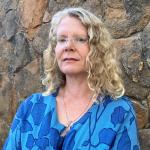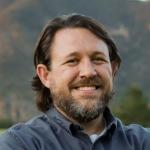Socio-ecological considerations for sustainAble Fuel treatments to Reduce wildfire Risk (SAFRR)
Navigating the New Arctic (NNA) is one of NSF's 10 Big Ideas. NNA projects address convergence scientific challenges in the rapidly changing Arctic. The Arctic research is needed to inform the economy, security and resilience of the Nation, the larger region and the globe. NNA empowers new research partnerships from local to international scales, diversifies the next generation of Arctic researchers, enhances efforts in formal and informal education, and integrates the co-production of knowledge where appropriate. This award fulfills part of that aim by addressing interactions among social systems, the natural environment, and the built environment in the following NNA focus areas: Arctic Residents, Education, Forecasting, Global Impact, and Resilient Infrastructure.
The boreal forest, a belt surrounding the Arctic south of the tundra, represents about 30% of the global forest area and provides critical food, shelter, and other needs to local and Indigenous peoples and wildlife, as well as key economic opportunities at the local, regional, and global scale. Wildfires occur naturally in boreal forests, but they have become increasingly dangerous as the climate warms. The area of boreal forest burned each year in Alaska and western Canada has doubled since the 1990s, and the region has experienced some of the most deadly and costly wildfire events in the last decade. Vegetation management methods such as thinning and prescribed burns, also known as fuel treatment, are among the main tools employed by land management agencies, landowners, and communities to reduce risk to residents and infrastructure. Effective fuel treatments require significant planning, implementation costs, and maintenance. Fuel treatments can also be controversial; they may face resistance and affect attitudes and behaviors of nearby residents. In this project, researchers are working with agency personnel managing forest lands and wildfire to create an integrated framework to evaluate fuel treatments; assess their short-term and long-term ecological effects and influence on wildfire behavior; examine how likely they are to be acceptable to residents; and evaluate the ability of alternative fuel treatment designs to achieve social, ecological, and public safety goals. The project is providing insights into how vegetation responds to different treatments, installation and maintenance costs, and acceptability to residents of different types of treatments in boreal forests, and is improving how land managers, landowners, and communities can use fuel treatments to reduce wildfire risk.
The project team is working with public land and wildfire practitioners; Indigenous organizations; and communities on the Kenai Peninsula, in Interior Alaska, and Anchorage, and Whitehorse, Yukon Territory, to co-produce an integrated assessment of fuel treatments. The team is following a co-produced approach to an integrated social-ecological evaluation framework. The project includes workshops and interviews with land managers and wildfire practitioners to identify preferred strategies, barriers to implementation, and key policies regarding fuel treatments and promote the exchange of knowledge and collaboration. Team members are providing new estimates on rates of fuel recovery across different types of fuel treatments and ecoregions to better understand the short and long-term ecological effects of fuel treatments and maintenance requirements. They are also testing whether vegetation successional trajectories can be directed towards creating longer-lasting treatments with lower maintenance costs, and evaluating the ability of alternative designs to achieve identified social, ecological, economic, and public safety goals. Surveys and interviews are being used to evaluate public acceptance of fuel treatments in Alaska and increase the understanding of how preferences and social acceptability of fuel treatments affect homeowner risk mitigation behavior in subarctic communities.
Ecological fieldwork on fuel treatments will be done in the summer of 2022 through 2024. Site locations include the Kenai Peninsula, interior Alaska, and Whitehorse, Yukon. Social interviews and surveys will be done in 2023 and 2024 on the Kenai Peninsula and Anchorage, Alaska.




